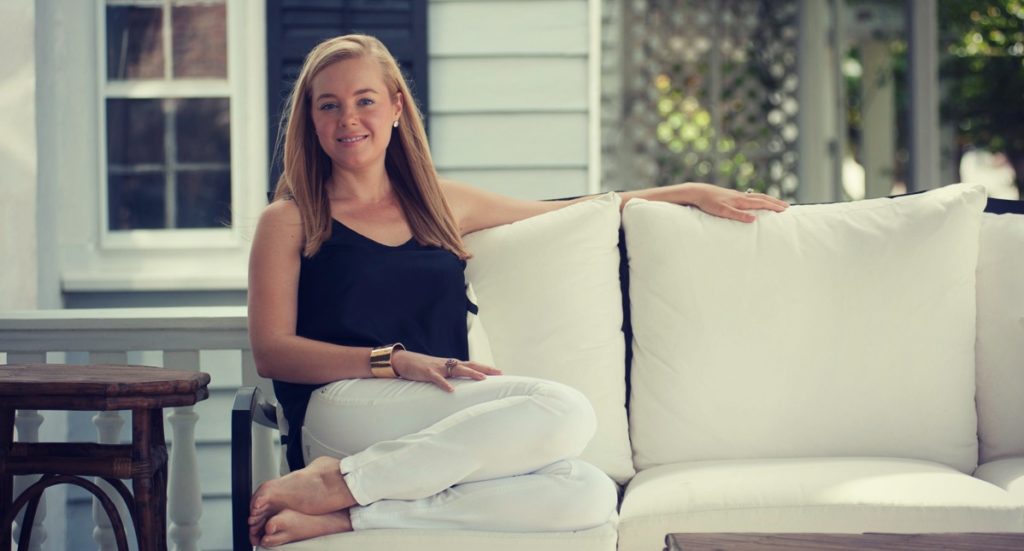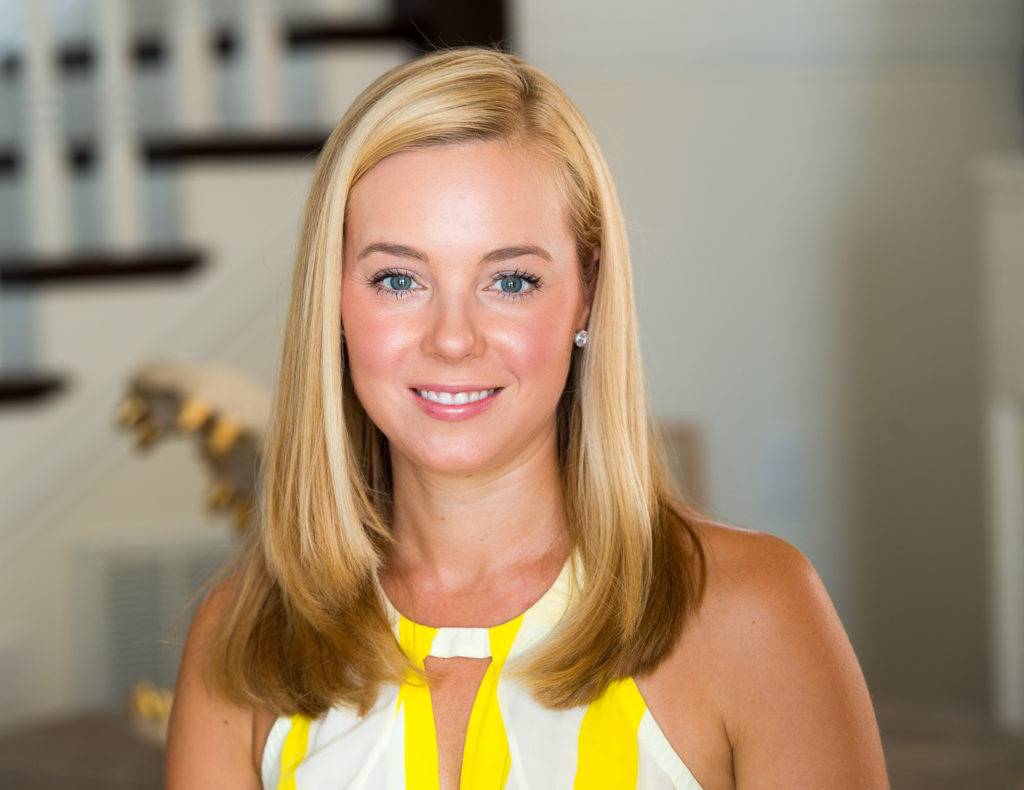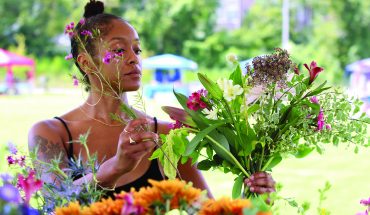The North Carolina author of The Peachtree Bluff series and forthcoming The Wedding Veil on her process, new novel, and more.
As told to Ayn-Monique Klahre
Kristy Woodson Harvey is a New York Times bestseller of nine novels, including Under the Southern Sky, Slightly South of Simple, and the Peachtree Bluff series. Many of her novels have a deep tie to her Southern roots, and draw on the experiences she had growing up among family and friends in coastal North Carolina. Her newest novel, The Wedding Veil, is a slight deviation for her: it’s a historical-contemporary novel that delves into the storied family behind the Biltmore Estate in Asheville, North Carolina. Here, she tells us about how she got her start as an author, her process, and what’s coming up next.
How did you get your start as a writer?
So I actually caught the writing bug interning at a newspaper, the Salisbury Post, in high school. I had my first column published there, and decided to go to journalism school [at the University of North Carolina at Chapel Hill] based on that. I studied creative writing and journalism in school, and I never thought I would write a novel, but around my mid-20s I started getting these ideas. I knew they were longer than a short story, and on in particular had the legs to be a novel. But I’m a very practical person, I didn’t like the idea of writing a book that would never get published. I wrote a few manuscripts before I thought, this is it, and I signed with a literary agent and got published. Now, I’ve had nine books published.
Many of your novels focus on multiple generations of the same family. Why is that?
All of my stories and intergenerational! I think it has something to do with growing up in the South — or maybe it’s not unique to the South, but I think that because I’m Southern — but I grew up in a place where you were always associating with people of all ages. I found it an interesting way to grow up. I have a close family, I grew up down the street from my grandparents. I live in Beaufort and it’s a small town, we have friends our age, and younger, and in their 80s — it’s a nice sense of community. And I want my novels to have that sense of community.
Most of your novels have been in the women’s fiction genre, but I understand that this is your first historical-contemporary novel. What inspired the different kind of story?
On a trip to the Biltmore, I became fascinated with Edith Vanderbilt and how she kept up the estate after her husband, George died. So I did some research, but I didn’t write about it. And then separately, I had an idea to do a story about a family heirloom veil, about all the women who wear it, about luck and love but also some of the darker sides of love, of the not-too-happily ever after. And then I learned about Edith Vanderbilt’s veil, which had been worn for many generations and then lost, and I thought that was a great premise for a novel. So I put them together.

Was your process different for this novel?
Honestly, I am not someone who plans a novel, I don’t outline, I don’t know what it’s going to be until I write it. That’s great for contemporary fiction, but it’s not great for historical fiction — I had to do a lot of editing. The dates and time periods were very specific, so I had to do vastly more research than I would for a novel. I was writing this during Covid, during that first true shutdown, even though I pitched it when the world was normal. I had planned to do all this in person research, but I wasn’t able to, so it took on a different tone. But I was still able to do a lot of primary research, and interview people, and eventually get to the Biltmore. I wanted everything about this book to be as factual and accurate as it could be. I read all the books about the Biltmore and the family, read every magazine and newspaper article, and I worked with someone at the Biltmore to fact check the book. And what was interesting is that I would find that there are many versions of the truth out there. The big things are the same, but there are differences in the details.
But I always do a ton of research for any of my books. For my contemporary novels, I interview people with similar experience. If I’m writing about a particular place, I’m going to go there: to see it, taste it, touch it. I do tons of interviews, read lots of books. I want to know what it feels like to be a lawyer, or a military wife. But even when you do all this research, the book still ends up in your own voice. You’re creating different people and different worlds, that’s what makes it fun.
What’s next for you?
I just got off the phone with my agent, and it’s confirmed that my next book, the Summer of Songbirds, will be published in April 2023, so that’s exciting! I’m actually going on vacation next week, and I can’t wait to print out my new manuscript and lay by the pool and read it. The Peachtree Bluff series is in development to become a TV show, so I’ve been working on that.
It’s funny, I never thought I’d write a series, but my editor pitched me the idea, and once I came up with the concept, I liked it. I don’t really need people to remember the characters or the stories, but I want them to remember Peachtree Bluff — it’s just a small Southern town, like the one I grew up in, where there’s always something going on, there’s always a scandal. And with Covid, it seems like people want to go somewhere cozy, somewhere familiar. My stand-alone novels are a huge priority, but I get lots of people asking if I’ll do another Peachtree Bluff novel.
And will you?
I can’t comment on that! But I will say, I understand the love of the series. These are the books I fell in love with growing up, The Babysitters Club Series, Sweet Valley High… Just like my readers, I want to go back to the people I know I love, I want to watch remakes of my favorite TV shows. I never think of myself as a series reader, but maybe I am!




